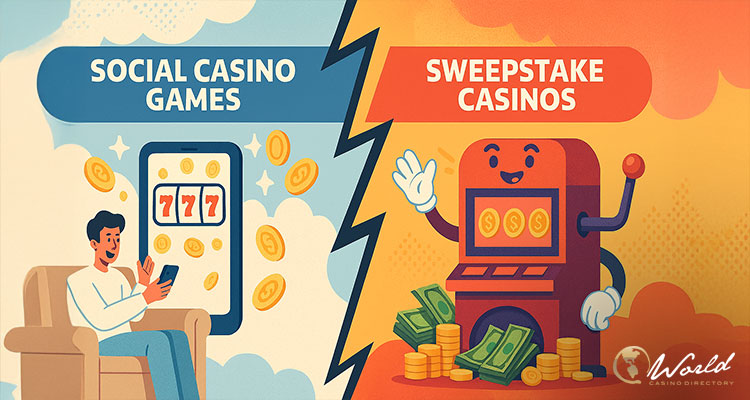Google has drawn a clear line in the digital gaming landscape, officially determining that sweepstakes casinos do not qualify as social casino games and therefore cannot advertise under the same rules. The subtle yet decisive policy update, issued on October 28, marks the first time the tech giant has explicitly referenced sweepstakes casinos within its gambling advertising framework.
According to Google’s amended Gambling and Games Advertising Policy, social casino products—apps designed to mimic gambling without real-world payouts—remain eligible for certification in permitted markets. However, sweepstakes casinos, long operating in a regulatory gray area, are no longer included in that category. As Google put it in its policy entry, “Examples of games that are not social casino games: Sweepstake casinos.”
Google’s Policy Shift Takes Immediate Effect
According to Sweepsy, the update was direct and issued without fanfare. Google stated, “On October 28, 2025, the Gambling and Games policy was updated to introduce examples of the type of games that do not qualify for certification under our social casino games policy, with sweepstake casinos identified as such an example of games that are outside the scope of the social casino games policy and ineligible for certification.” With the change in place, sponsored posts tied to sweepstakes operators disappeared from tracked search results across Google’s network.
The move builds on Google’s April 2025 review of online gambling rules, when it expanded definitions to include “virtual-currency games or items with real-world value.” That earlier update initiated uncertainty across the sweepstakes market—this latest change closes the loophole.
Why Sweepstakes Casinos Were Carved Out
Sweepstakes platforms such as McLuck, WOW Vegas, and Pulsz often resemble social casino apps in their design and gameplay, but their dual-currency system separates them. Though users may play with free virtual coins, sweepstakes credits can be redeemed for prizes, creating a real-world value exchange. As Google notes, “Social casino games are online simulated gambling-style games where there is no opportunity to win something of value.”
Games offering redemption or winnings fall instead under stricter online gambling rules, requiring separate certification and licensing in allowed jurisdictions. Google reiterated, “Games that fall under the banner of real-world rewards are subject to the specific restrictions and allowances of the online gambling policy.”
New Advertising Hurdles and Compliance Challenges
The shift introduces notable compliance barriers for sweepstakes casino operators and affiliates alike. Without access to social casino ad certification, sweepstakes brands must either secure online gambling authorization—often a lengthy and geographically limited process—or halt paid campaigns altogether. Google warns that attempts to advertise without proper classification may trigger account suspensions or automated rejections.
Affiliates and content platforms are also impacted. Google continues to ban “promotion of content which itself directly promotes engagement in social casino games,” and this scrutiny now extends to sweepstakes advertisers and aggregators.
Industry Reaction and Legal Backdrop
The change lands as sweepstakes casinos face intensifying legal attention across the United States. Regulatory bodies, commercial gaming interests, and tribal casinos have all challenged the model, arguing it skirts traditional gambling rules while competing with licensed casinos that comply with state oversight. Several states—including California, Connecticut, Montana, Nevada, and New Jersey—have already enacted direct bans on these platforms, with others restricting them through regulatory agencies.
The pressure extends to Silicon Valley. A federal lawsuit filed in New Jersey targets Google and Apple under Racketeer Influenced and Corrupt Organizations (RICO) statutes, accusing them of profiting from sweepstakes operations like High 5 Casino and Chumba Casino. The companies are seeking to move the case to the Northern District of California, where both are headquartered.
A Turning Point for the Sweepstakes Model
With Google’s advertising gateway now narrowed, platforms that relied heavily on paid search visibility may pivot toward influencer partnerships, SEO-driven growth, and alternative marketing channels. Operators are also expected to refine their messaging, potentially adopting language like “sweepstakes gaming platforms” to avoid confusion or misclassification.
While the digital casinos can continue offering play-for-fun titles supported by sweeps coin redemption models, their ability to attract new players could face ongoing friction. As one of the most influential marketing platforms in the world, Google’s policy change signals a tightening regulatory climate—and may prompt other tech companies to follow suit.
For now, one thing is clear: by stating plainly that “Sweepstake casinos” are excluded from social casino status, Google has redrawn the boundaries of online gaming advertising, signaling a new era of oversight and compliance in the fast-evolving sweepstakes sector.



